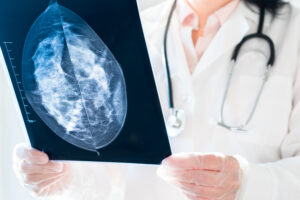
“Innovate, impact, and improve women’s health,” has been WWHF’s mission and motto for decades. Innovation allows us to find new, better, and more effective ways of solving problems – be it in our health policies, systems, technologies, or services that improve women’s health.
At WWHF one of the ways we work to advance health equity is by focusing our efforts and resources on populations that are disproportionately impacted by health issues. While the driving forces behind these disparities are complex, mammograms reduce breast cancer disparities.
According to the American Cancer Society, when breast cancer is detected early and is localized, the 5-year survival rate is 99%. We work for early detection, early diagnosis, better treatments and hope someday for an end of this disease – for everyone.
It is no surprise that WWHF embraced the opportunity to become a community partner on the recently awarded five-year grant for a Mammographic Quality Project addressing Wisconsin’s breast cancer disparities. This five-year grant is part of the Community Cancer Science Network (CCSN) and is funded by the Advancing Healthier Wisconsin (AHW) Endowment at the Medical College of Wisconsin. This project will “… develop a sustainable shared measurement system to identify and track factors perpetuating breast cancer disparities, and inform best practices supporting improved mammographic quality and breast cancer detection and survivorship to reduce Wisconsin’s breast cancer disparities.”
As we enter the post-award phase, it’s important to note the significant amount of work that will now take place over the next five years. As part of this phase, Kelly Hackett was hired at WWHF for the key role of Project Manager for the grant. She is responsible for overall grant management, program planning and oversight, partnership development, and will be the bridge between project partners, stakeholders, and the CCSN.